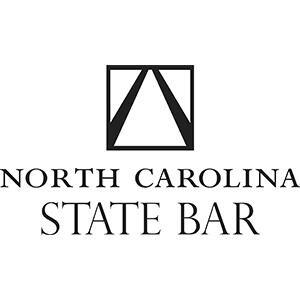A Primer for Paralegals and Attorneys Regarding Paralegal Certification
The paralegal profession has seen significant and progressive growth since its birth in the mid-1960s. Paralegals no longer work just in traditional environments such as law firms and governmental agencies. The profession is expanding into corporate legal departments, paralegal teaching positions, freelance paralegal services, and paralegal management positions. Paralegals are also applying their paralegal skills to other careers. The profession is no longer considered a stepping-stone to law school. Furthermore, the days of paralegals working without formal education are steadily declining.
There has been a growing national trend toward paralegal regulation and North Carolina has not been immune to this. In 2004, the NC State Bar adopted and the North Carolina Supreme Court approved The Plan for Certification of Paralegals (“Plan”). The Plan is a voluntary certification program that allows paralegals certified by the NC State Bar to use the title “North Carolina Certified Paralegal.”
This Plan is an opportunity to raise the professional bar for paralegals in North Carolina. The purpose of certifying paralegals is to assist in the delivery of legal services to the public by identifying individuals who are qualified by education and training and have demonstrated knowledge, skill, and proficiency to perform substantive legal work under the supervision of a licensed lawyer. It also improves the competency of those individuals by establishing mandatory CLE and other requirements of certification.
If a paralegal does not want to be certified, he or she does not have to be. This is a voluntary certification plan. If a paralegal does become certified, however, the paralegal may use the following designations: "North Carolina Certified Paralegal," "North Carolina State Bar Certified Paralegal," or a "Paralegal Certified by the North Carolina State Bar Board of Paralegal Certification." However, the paralegal could still perform substantive legal work under the supervision of an attorney as a "Paralegal," "Legal Assistant,” “Legal Secretary,” “Case Coordinator” or any title other than those listed above.
Paralegals are prohibited from practicing law by statute and required to work under the supervision of a licensed attorney. The certification does not expand the duties of paralegals and does not change the Authorized Practice of Law statute.
To become a NC Certified Paralegal you must fulfill the educational requirements of Rule .0119(a) of the Plan for Paralegal Certification and successfully pass the certification examination. To be eligible to sit for the certification examination, an applicant must satisfy the following criteria:
- Be a legal resident of the United States.
- Have a degree in paralegal studies from a qualified paralegal studies program. To be qualified, the program must be ABA approved or qualified by The Board of Paralegal Certification. There is also a listing of NC Qualified Paralegal Studies Programs on the State Bar’s paralegal website.
- Submit a completed application along with the filing fee ($125.00). The application must be accompanied by an official transcript and be signed in the presence of a notary.
North Carolina Certified Paralegals are required to attend annual continuing education programs to maintain their certification. Six hours of annual continuing paralegal/legal education, which includes a minimum one hour of ethics, will be required of all NC Certified Paralegals each 12 months of certification.
Becoming a North Carolina Certified Paralegal will not negatively affect your national certification. Certified Legal Assistants (CLA) and PACE-Registered Paralegals (RP) have already demonstrated their excellence and their commitment to the paralegal profession. Becoming a North Carolina Certified Paralegal will demonstrate your commitment to the paralegal profession on the state level.
The professional standards created by the Plan will provide the freelance paralegal that chooses to become certified an opportunity to be clearly identified by attorneys, consumers, and other paralegals as having met high professional standards. However, it will not allow freelance paralegals to represent the public directly unless you are already authorized by law to provide services directly to the public (i.e., social security disability and patents).
The cost for certification is affordable. The cost is $125 to apply to sit for the examination, plus an additional $50 examination fee once you are approved to take the examination. The annual renewal fee is $50.
Why should you encourage the paralegals in your firm to become NC Certified Paralegals? A paralegal who satisfies the educational and examination requirements for certification and annually fulfills the educational requirements to maintain certification has demonstrated knowledge, ability, and continuing dedication to the provision of quality legal support to firm lawyers and indirectly to their clients. Certification emphasizes the importance of paralegals in the practice of law and is a much-deserved recognition of the paralegal profession in North Carolina. Becoming a NC Certified Paralegal is the next step in a paralegal’s career. Supporting that career development by encouraging staff members to apply for certification and providing the financial support needed to apply and to meet the annual continuing paralegal education requirements will benefit the paralegal, the law firm, and clients.
For further information, including a list of FAQ’s or to view the entire Plan for Certification of Paralegals, please visit www.ncbar.gov or www.nccertfiedparalegal.gov.
About the Author

Joy C. Belk
Joy C. Belk, NCCP, is the Assistant Director of Paralegal Certification for the North Carolina State Bar.
Read More by Joy >
